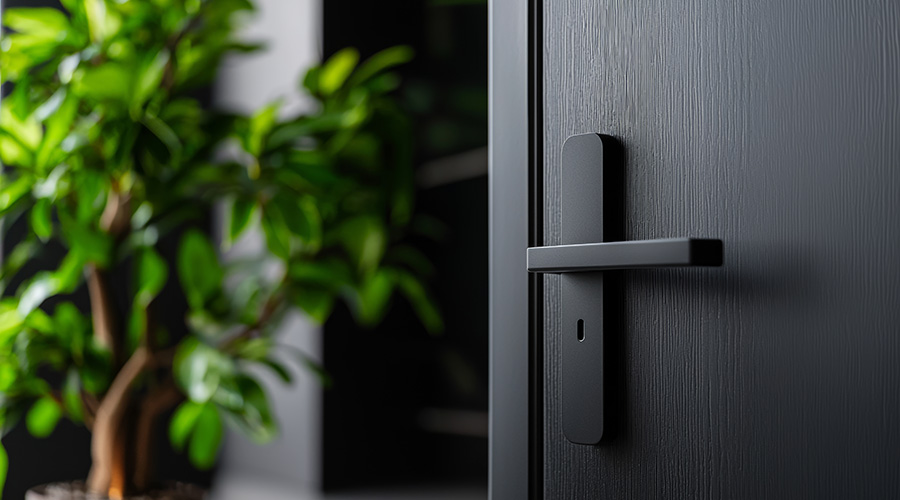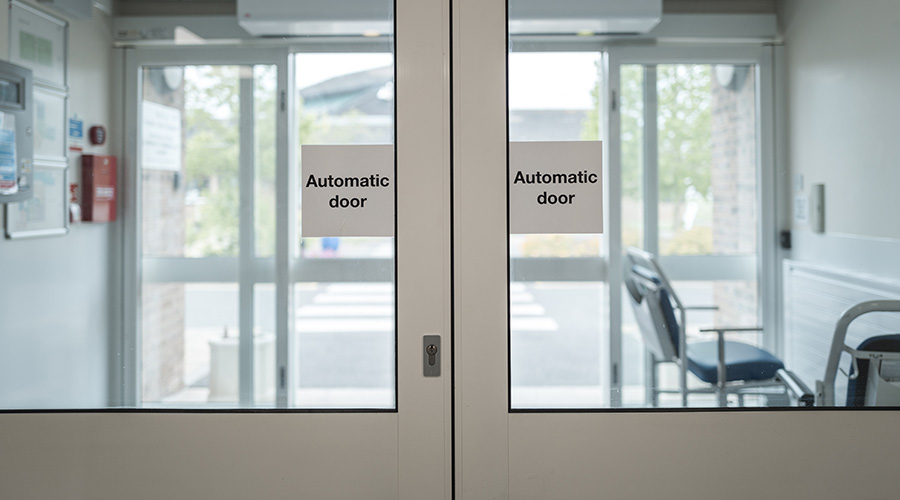Door-Hardware Maintenance Includes Lubrication, Adjustment
Most door-hardware components require maintenance at some point, due to general wear and tear from regular use. Among the most common types of repairs for these components are lubrication, adjustment, alignment and weather sealing.
Lubrication is required once every six months to a year, depending on the type of door and its level of use. Hinges and door closers should get a few drops of penetrating oil at the top so it runs down into the wearing surface between the pin and the housing. Lock mechanisms that need lubricant should get a shot of dry graphite from a spout-type bottle.
In addition to simply providing lubrication for door hardware, this step prevents freezing in cold weather. A good time to schedule lubrication is just before cold weather starts. Technicians should not lubricate electronic locks because graphite is an insulator and will interfere with current flow through contacts.
Regarding adjustments, the two parts of a door that most often require attention are hinges and closers. During lubrication, technicians should check hinge screws for tightness. In time, wood door frames dry out and screw holes open up, so the screw continues turning. When this happens, technicians should fill the hole with appropriate hardening filler, redrill the hole and replace the screw — or place a screw insert in the hole and replace the screw.
Closers operate either pneumatically using air or hydraulically using oil. Over time, the door begins to bang against the stop or does not close all the way. Technicians can correct this problem by adjusting the screw on the cylinder. This step regulates the stroke so the door just closes against the stop without banging or leaving a gap.
Closers come with installation and adjusting instructions and parts lists. Managers should file these and give them to the tradesperson when making the preventive maintenance assignment, a move that will save technicians a great deal of time at the job site trying to figure out how the mechanism works. This job is probably not going to be done very often, so the operation of each different type of closer or lock will be only vaguely familiar to the tradesperson, even if the same person does it every year.
Related Topics:















